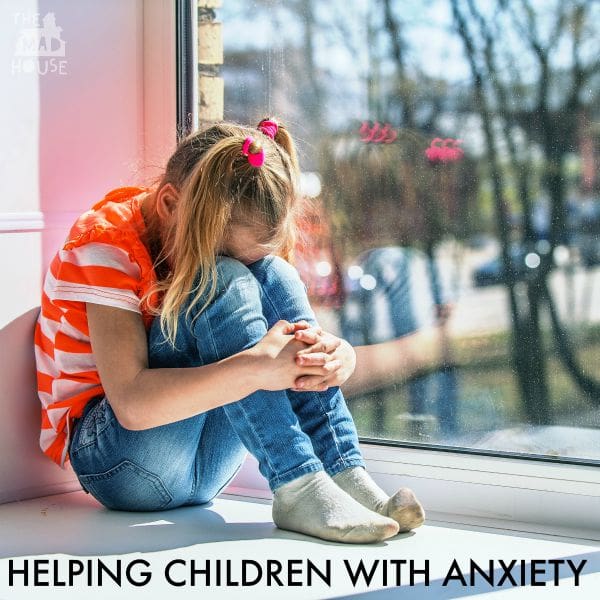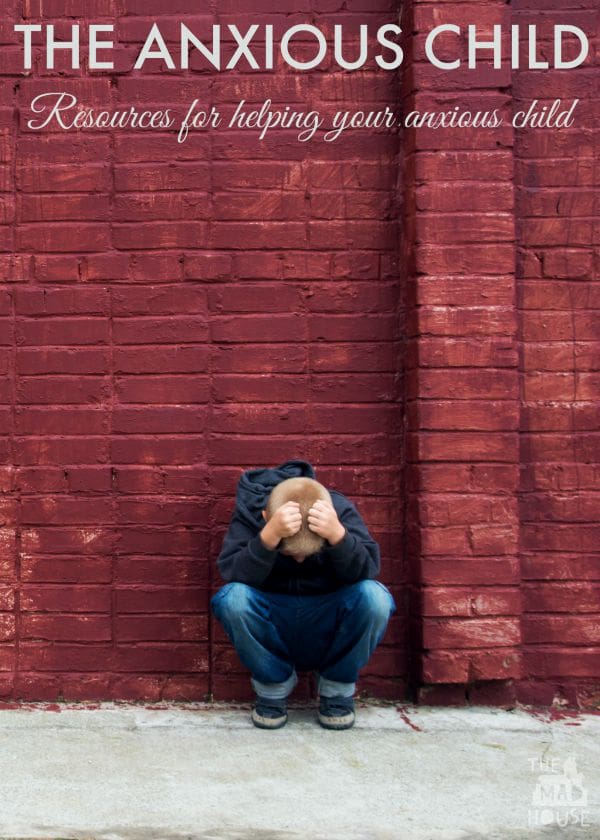I was an anxious child. Not through my whole childhood, just part of it. For me anxieties were linked to my quest for perfectionism and the need to be able to control everything. I was lucky and my parents got help for my issues and never belittled them.
Anxiety is common in children and adolescents with 10-20% of school-aged children experiencing anxiety symptoms. Firstly I think that we need to be realistic and remember that our goal is not to remove the anxiety but to provide our kids with tools to help them deal with it. Anxiety is a common emotion and we need to learn ways to manage it. I also feel that as parents we need to make the decision of when and where to get professional help if necessary. I think that it is only normal to be anxious at times and at some point we will all have feeling of worry, nervousness, or unease about something. The kicker is how we deal with these feelings and as a child it can be hard to put these feelings into words, let alone deal with them!
Helping our children overcome anxiety
Encourage your child to talk about their anxiety. Encourage them to be open about their fears and worries and reassure them that it is normal to have some of these feelings. Support them by explaining that you understand that they have these feelings and that you can work together to find ways to cope with them. Show acceptance of their worries, fears and anxieties and confirm that you are there to help them.
Explain the feelings. Discuss what they are feeling and how it makes them feel, acknowledge these feelings, but instill in them that feelings in themselves are not dangerous and that is is inbuilt in us from Neanderthal days and our fight and flight response. Sometimes knowing there is a reason for the feelings can help give them less power. Anxiety is always going to be part of life, we can not eliminate it, but we can cope with it.
Explore solutions. “What can you do that can help that?” is a great question to have in your parenting toolbox. Focus on exploring a solution rather than just the feelings. Give them practical solutions that you have worked on together.
Try not to pass your anxiety and emotion to your child. Children can be extremely perceptive and pick up on our worries. It is natural to feel overprotective, but rather than doing things for your child or helping them to avoid anxiety provoking situations, encourage your child to find ways to manage them.
Distraction can be helpful for young children. For example, if they are anxious about going to school, then play games on the way there such as counting the number of yellow cars they can see of the number of cats. There are some great solutions for back to school anxiety here.
Practice simple relaxation techniques with your child, such as taking three deep, slow breaths, breathing in for a count of three and out for three. Or ask your child to image him or herself somewhere relaxing, like the beach or relaxing in a backyard hammock. Then get them to close their eyes and imagine the sounds, smells, and sensations associated with the image. We are big fans of Relax Kids CD’s. There are also some fab relaxation techniques here.
Take practical action. Use a ‘worry box’ where the child can write the worry down and post it into a tissue box so it is contained. (Some children will enjoy decorating the box, too). They can post their worries every day if it helps, or leave the worries in there and take them out after a week to see if they were worth worrying about (if not they can be torn up). We have a lovely My Worries! pad from Flamingo Gifts, which we use now that the boys are older. We have also used guatemalan worry dolls in the past too. You need to factor in the age of your child with what you think will help them.
Never give up. The source of your child anxiety can and may change over time and anxiety can often be chronic at different times in a child’s life (new school, moving house or exams). It can often feel as though you are constantly fighting fires, but repetition is the key> Over time the solutions you have put into place and worked at with your child will help them cope.
Seek help. There might be a time when you realise that you need to seek professional help for your child’s anxiety. This is not admitting defeat, just looking at getting new ideas and ways of helping.
There are some fantastic resources for helping kids of all ages with anxiety:
Picture books for kids who worry
Teaching children to overcome fear in three steps
Putting it in neutral – a technique for battling negative thoughts
Create your own anti-anxiety kit for kids
10 ways to help your child overcome fear and anxiety
Helping your child with back to school worries




Comments are closed.